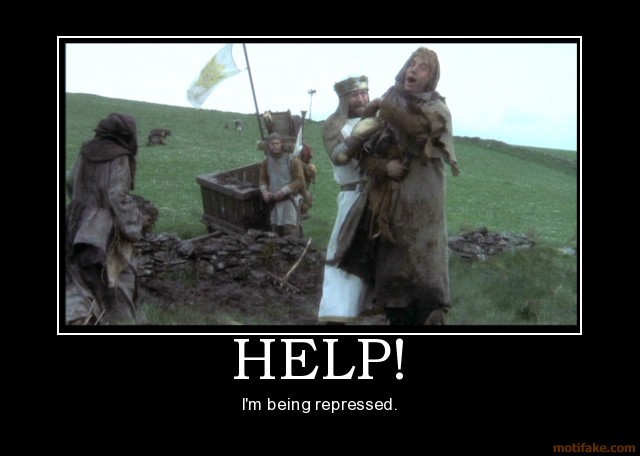World History
Related: About this forumEveryday Life in the Middle Ages
At one time, historian Ian Mortimer, 44, was an ambitious student at the University of Exeter. But, frustrated after his exams, he moved back to the remote village of Moretonhampstead in Devon, in southwestern England. He started a family, bought a house and built a bell tower.
For years, he raged against all the academics who torment their audiences with "boring and tedious" treatises. But then he started writing his own books.
Since Mortimer doesn't like to travel and hasn't boarded an airplane in years, it might seem odd that his best-known work is essentially a travel guide. In the book "The Time Traveler's Guide to Medieval England," Mortimer explains what travelers would expect if they were catapulted back to the Middle Ages in a time machine. Instead of writing about famous battles, kings and wars, he describes how it smelled in the narrow alleyways, what kinds of meals the people cooked in their crooked houses, and how they washed their backsides.
The response has been tremendous. Readers and critics alike are enthralled by his unconventional historical prose, and universities are recommending his trip into the Middle Ages as basic reading for young history students.
http://www.spiegel.de/international/europe/historian-ian-mortimer-describes-everyday-life-in-the-middle-ages-a-842820.html
pscot
(21,044 posts)And soon, so will I. ![]()
RevStPatrick
(2,208 posts)Right now I'm reading "The Alcoholic Republic:An American Tradition."
In the early days of our republic, everyone was always a little drunk, and rum and whiskey were used as currency.
http://www.amazon.com/The-Alcoholic-Republic-Tradition-ebook/dp/B003HSJTTU/ref=sr_1_2?ie=UTF8&qid=1342111929&sr=8-2&keywords=alcoholic+republic
I'm going to download "The Time Traveler's Guide to Medieval England" onto my kindle and read it next!
mgc1961
(1,263 posts)...a good book from the University of Chicago Press is The Beggar and the Professor. It's a family saga filled with details about travel and customs in 16h century France. The author is Emmanuel Le Roy Ladurie. My 1998 paperback edition was translated by Arthur Goldhammer.
UnrepentantLiberal
(11,700 posts)Must have that book.
HIlton Brackett
(26 posts)There are a couple of Medieval Mortimer's in my family tree
Anne Mortimer Countess of Cambridge 1388-1411 Grand Mother of Edward IV and her father
Roger Mortimer 4th Earl of March 1374-1398 Killed in Battle
Curmudgeoness
(18,219 posts)I had a Western Cultures History class in college that was the first history class I ever enjoyed. Our textbook had chapters split into sections----the usual wars and kings, policies of the time and place, and then there was a section on how the ordinary people lived and were affected by the policies and traditions of the time. I loved that part of it. I wish that all history classes included ordinary people, because, to be perfectly blunt, that is all most of us can relate to.
I will read this book.....definitely. Thanks for the heads up.
RZM
(8,556 posts)FailureToCommunicate
(14,583 posts)
dmallind
(10,437 posts)To me, history as a subject IS kings and battles and whatnot, because they are what matter; they are what shaped the world and caused events to unfold that changed society. It is the doings of emperors and generals that brought about our world as we see it, and what we must understand as we address real issues. Do we have conflicts in Afghanistan and Iraq now because earlier imperial forces imposed artificial boundaries on enforced amalgamations of assorted tribes, or because of how Pashtuns traditionally cleaned their backsides or how Mosul smelled centuries ago?
Surely trivial events shape the world too, but as coincidental triggers to great events. WWI may not have happened had not a (not intended to be the killer) participant in the botched assassination plot stopped for lunch, and doubtless booze to assuage his frustration, on a street which Franz Ferdinand, equally unplanned, happened to take as a detour after the event where he was supposed to have been killed. But it was the battles and the treaties that spawned the resentful rise of Weimar and Third Reich Germany and brought the world the replay. Neither depended on aggregate social norms and slice of life trivia. Don't grt me wrong I enjoy trivia - but trivia about daily life long ago is history only as any past events are history; history purely as a definition of completed events. They are not history as in the events that motivated and measured important world changes.
oldironside
(1,248 posts)I agree that statesmen are important, but any student of history who limits him or herself to the study of policy and politicians is missing so much. How did our ancestors live? How did they see the world? Why did they accept the political instutions of the time and not fight for what we would call democracy? Why did they fight for leaders who had no interest in the lives and futures of the little people? What made my countrymen (the English) travel over the whole globe and risk dying of malaria and dysentry, just to found an empire? One cannot understand the past without answers to these questions, and these answer will certainly colour one's view of the present.
Odin2005
(53,521 posts)Rowdyboy
(22,057 posts)An easy but informative read.
bodem1955_om
(16 posts)now if only I could find it...
left-of-center2012
(34,195 posts)Amazon has it.
raccoon
(32,214 posts)It's about the fourteenth century. Plenty of history in it but also info about people's
everyday lives.
I'm about a third of the way through.
a la izquierda
(12,231 posts)I'm a Latin American historian, but I read outside my field for fun.